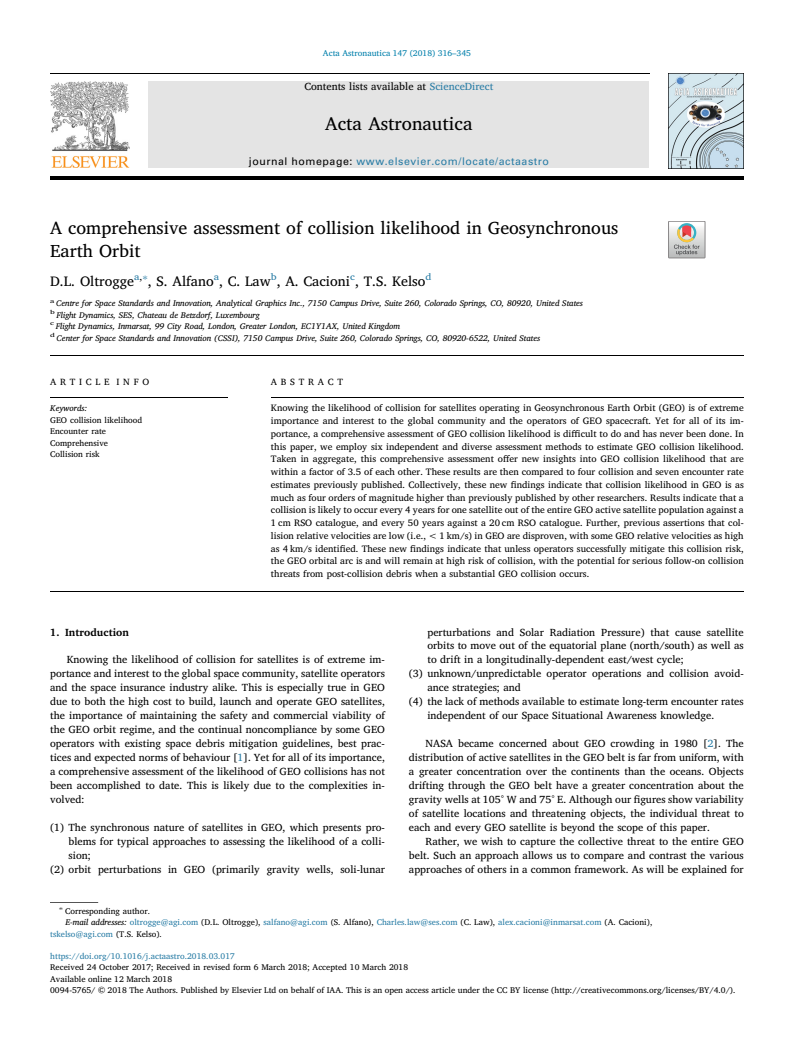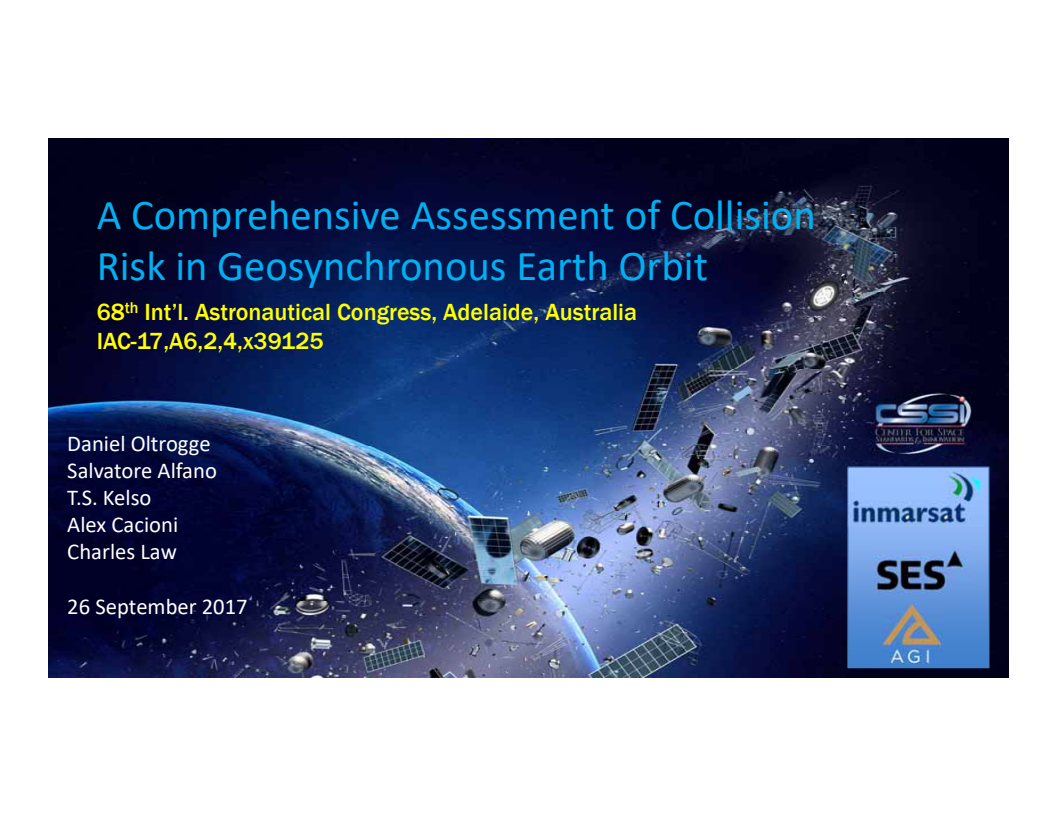A comprehensive assessment of collision likelihood in Geosynchronous Earth Orbit


Id: 228
Type: Conference paper
Published: 09/26/2017
Event: International Astronautical Congress (IAC) 2017
Authors:
Click an author to filter the list of related assets below.Abstract:
Knowing the likelihood of collision for satellites operating in Geosynchronous Earth Orbit (GEO) is of extreme importance and interest to the global community and the operators of GEO spacecraft. Yet for all of its importance, a comprehensive assessment of GEO collision likelihood is difficult to do and has never been done. In this paper, we employ six independent and diverse assessment methods to estimate GEO collision likelihood. Taken in aggregate, this comprehensive assessment offer new insights into GEO collision likelihood that are within a factor of 3.5 of each other. These results are then compared to four collision and seven encounter rate estimates previously published. Collectively, these new findings indicate that collision likelihood in GEO is as much as four orders of magnitude higher than previously published by other researchers. Results indicate that a collision is likely to occur every 4 years for one satellite out of the entire GEO active satellite population against a 1 cm RSO catalogue, and every 50 years against a 20 cm RSO catalogue. Further, previous assertions that collision relative velocities are low (i.e., < 1 km/s) in GEO are disproven, with some GEO relative velocities as high as 4 km/s identified. These new findings indicate that unless operators successfully mitigate this collision risk, the GEO orbital arc is and will remain at high risk of collision, with the potential for serious follow-on collision threats from post-collision debris when a substantial GEO collision occurs. Keywords: GEO collision likelihood, encounter rate, comprehensive, collision risk.
Citation:
Oltrogge, D.L., Alfano, S., Law, C., Cacioni, A. and Kelso, T.S., “A Comprehensive Assessment of Collision Likelihood in Geosynchronous Earth Orbit,” IAC-17,A6,2,4,x39125, 2017 International Astronautical Congress, Adelaide, Australia, 26 September 2017, accessible at https://comspoc.com/Resources/Content/Private/C-20220422T150555/Paper/IAC-17,A6,2,4,x39125.pdf
Papers with related authors:


Results of comprehensive STCM data fusion experiment
Read More
Using Spacebook and Cesium to Promote and Enhance Flight Safety
Read More
Actionability and Persistence Of Conjunction Data
Read More
Actionability and Persistence of Conjunction Data
Read More
Synthetic Covariance Production Using a New Digital Approach
Read More
Addressing the debilitating effects of maneuvers on SSA accuracy and timeliness
Read More
Actionability and Persistence of Conjunction Data
Read More

Comparison of predicted and observed spacecraft encounters from Russian ASAT test
Read More
Efficient assessment of long-term encounter rates with CSSI’s volumetric encounter method
Read More
Russian ASAT Debris Cloud Evolution and Risk
Read More
Evaluation of LEO conjunction rates using historical flight safety systems and analytical algorithms
Read More
Innovative LCOLA tool prioritizing accuracy, launch access and efficiency
Read More
SSA positional and dimensional accuracy requirements for Space Traffic Coordination and Management
Read More
Risk Assessment of Recent High-Interest Conjunctions
Read More
Risk Assessment of Recent High-Interest Conjunctions
Read More
LEO constellation encounter and collision rate estimation: an update
Read More
The cost of not doing debris remediation
Read More
The technical challenges of better Space Situational Awareness and Space Traffic Management
Read More
Probability of Collision: Valuation, variability, visualization, and validity
Read More


Probability of Collision: Valuation, Variability, Visualization, and Validity
Read More




Updated Analytical Partials for Covariance Transformations and Optimization
Read More